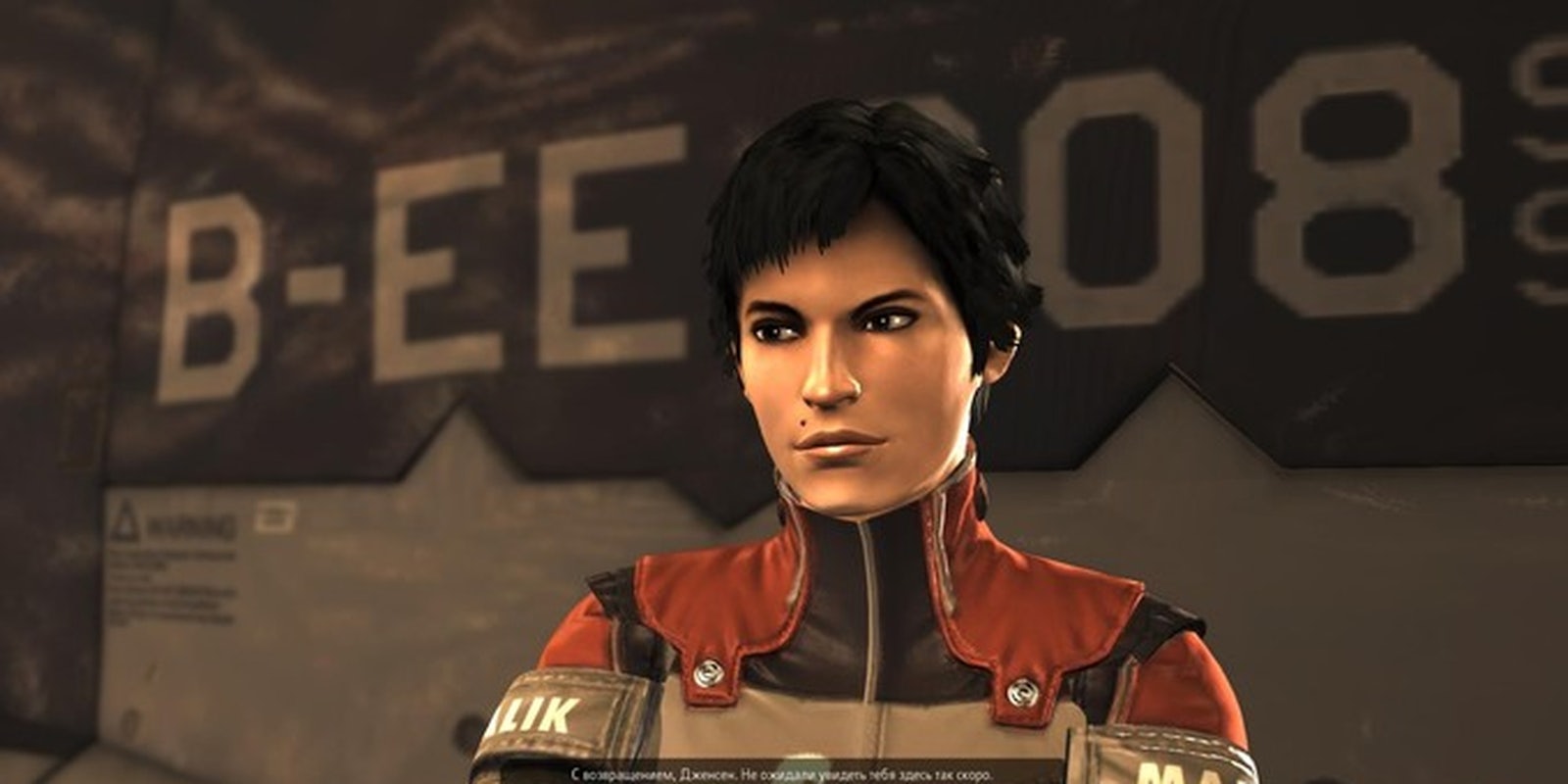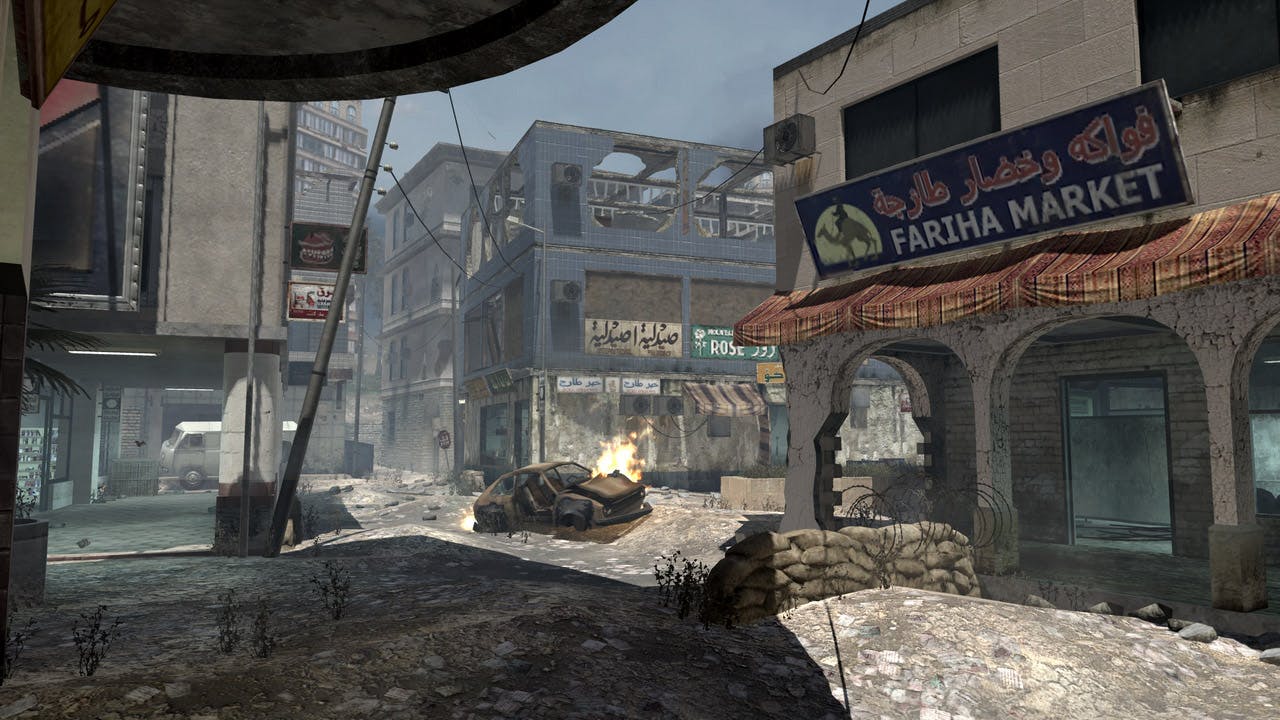Gamers have become so accustomed to shooting nameless brown-skinned enemies that many don’t even notice it anymore. But it’s a troubling fact not lost on the many Muslims who make and play popular video games.
“Muslim blood is cheap” said Rami Ismail, co-founder of indie studio Vlambeer, at a Game Developers Conference panel earlier this month. This sentiment hit me hard as I stood with him on stage at the event. As the host of the panel on Muslim representation in video games, these are issues I’ve thought about a lot.
Of course, any conversation about how Muslims are portrayed in video games is trickier than you might think. Firstly, just because a character looks Middle Eastern in a video game, does not mean the developers intended for the character to be Muslim. And even when a character is identified as Muslim, it can feel out of place. Romana Ramzan, a lecturer at Glasgow Caledonian University who has a doctorate in serious games, highlighted Faridah Malik from Deus Ex: Human Revolution as an example. Developers at Eidos Montreal described Faridah as an observant American Muslim from Dearborn, Michigan, but Ramzan wondered why Faridah wasn’t identified by her ethnicity. It’s not as if other character profiles are defined by their religion.
Another pitfall is when just one Muslim character ends up being the token representation for all Muslims. The character needs to be Western, while hanging on to Eastern roots; to be Muslim, but not too Muslim.
In reality, we’re 1.6 billion people who differ greatly between countries and cultures. Even within my panel, which included Ismail, Ramzan, and Farah Khalaf, a board member of the New Zealand Game Developers Association, we disagreed on a lot. And we’re all kids who grew up in the West, speaking on behalf of the world’s global Muslim population. Not one of our panelists came from a Muslim-majority country.
Because of our Western upbringing, we’ve only experienced the turmoil in the Middle East through the lens of our computer screens. Still, the topic of war ignited a very heated discussion.
In games like Call of Duty or Battlefield, the enemy is usually either Middle Eastern or Russian. This definitely rubs Ismail the wrong way. He noted that while Muslims have the cheapest blood, American blood is almost universally the most expensive. Ismail would like to see games that have it the other way around, where America is the bad guy. Ismail did note that in Call of Duty: Advanced Warfare, the main antagonist was a megalomaniacal Jonathan Irons (Kevin Spacey). With his army of military contractors, he was hell bent on taking over the world. To justify killing Americans in Advanced Warfare, the enemy had to be absolutely evil.
In light of the recent attacks in Brussels, sentiment that Muslim blood is cheap seems painfully true. Western news sites, including The Daily Dot, largely ignored the multitude of attacks from Istanbul, Turkey, to Maiduguri, Nigeria. Even now, the attacks in Paris and Brussels loom larger on social media than the many mass-casualty tragedies suffered outside Western borders. Muslims have felt the absolute largest brunt of terrorism, but have received the least amount of attention in the West. With hundreds of thousands of lives lost, it’s hard to not to feel that we’re just less valuable.
Even when the Muslim world is portrayed on the news, in movies, and in many video games, it’s shown as an area that’s broken and in shambles. This was a point that Khalaf wanted to drive home. The Muslim world is the epicenter for many architectural movements and has contributed to the world in profound ways. Take a trip to Beirut, Istanbul, or Tehran and many will be surprised to see what they find. But maps like Dust 2 in Counter-Strike: Global Offensive or Karachi in Call of Duty: Modern Warfare 2 show a dystopian, degregated landscape. There’s so much more that could be shown, but it seldom ever is.
Because there was so much to talk about, we had very little time left for questions from the audience. Fortunately, GDC provided a wrap-up room so people could stick around for more.
It lasted two hours.
The conversation morphed from a Q&A into a group discussion, almost like a support group, It turned from representation in video games to the challenges Muslims face while working in the video game industry. Someone asked how we deal with the after-party culture of GDC. Socializing outside of the conference is a way to build relationships and make business connections, but every event is filled with alcohol. (Just this year, Microsoft had to apologize for showcasing scantily clad dancers at its ID@Xbox party.)
And even in the GDC convention space, there was no designated area for spiritual meditation. Many Muslims had to run to an odd corner, like under an emergency stairwell, to get a bit of privacy for their five obligatory prayers. It’s possible this need was just overlooked—which makes the suggestion that Muslims in the industry get more organized a great idea. There’s already a Jewish Special Interest Group at GDC. Having a stronger voice can improve not just accommodations, but perhaps create greater awareness and sensitivity to Muslims in gaming.
It’s a weird time to be a Muslim in the West. When you have presidential candidates thriving on platforms that seem just short of putting people in concentration camps, it makes you wonder what your role is in your country. Many of us are not seen by our nationality, but by our ethnicity and the religion we were born into.
But that doesn’t mean that we have to sit around and let bigoted attitudes rule our lives. The interest in our panel gives me hope that there’s support for advocacy that could possibly lead to studios hiring more from Muslim-majority countries. It could also dissuade writers from adding in simple token characters and give greater levels of complexity and depth.
The final major barrier to the diversification of game development are the fundamental tools and kits game creators use. They’re almost universally in English, making it that much more challenging for game developers around the world to add their own perspectives and inspiration to the industry. If we can find ways to help bridge that gap, the indie game explosion that West has enjoyed in the past decade could proliferate overseas—and wouldn’t gaming be richer for it?
The gaming industry is still young, it’s being guided by leaders who seem to want to be more socially conscious and aware. Though we still have a ways to go, we’re starting to see better representation for women and LGBTQ players and developers in the industry. Now we have an opportunity to make sure that people of diverse religious backgrounds are also part of the conversation.
Illustration via Eidos Montreal

